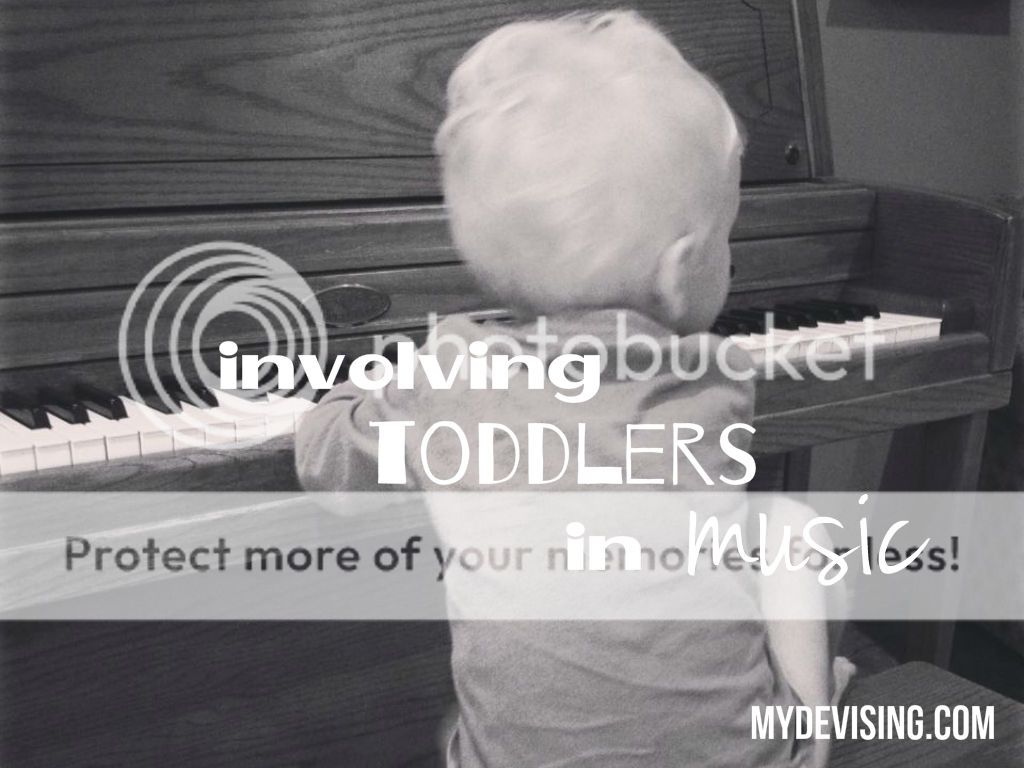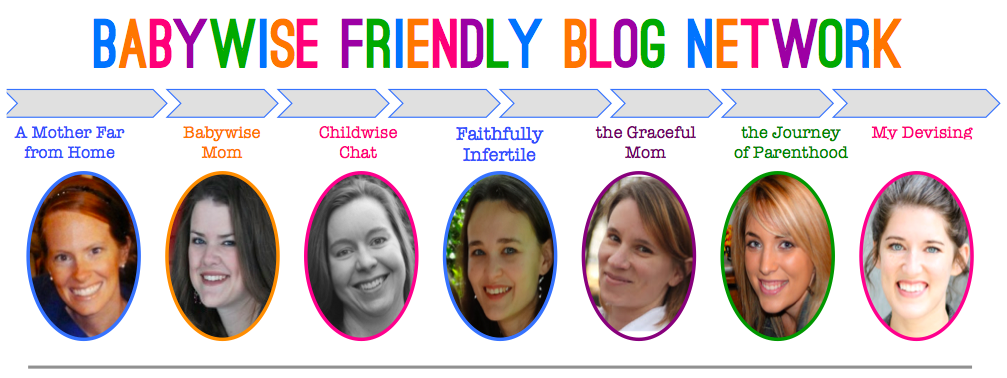Today I’m over at the Journey of Parenthood debunking the “three children are the hardest” phrase in my post called Third time’s a…charm or curse? Be sure to check out all the other great posts at Babywise Mom, Childwise Chat, Faithfully Infertile, and My Devising.
My 2-year-old son, Duke, is quite the music-lover. But coming from an entire family of music-lovers makes that pretty much unavoidable.
While we certainly value other areas of interest and plan to encourage opportunities in non-musical activities, we, to our core, are “music people.” I grew up with it, majored in it, and taught 3 years of music in public elementary/high schools. It’s one of my hopes that Duke will appreciate and participate in music throughout his life.
For most children, structured music education doesn’t happen until they go to school. Around here, it either begins in kindergarten or 1st grade. Most children haven’t started private music lessons by those ages. (I don’t personally recommend starting piano until age 6 or 7.) So up until age 5 or 6, a child’s music education is in the hands of the parent(s).
While there are music programs offered at local churches, Kindermusik classes, etc. that are great to be involved in, that’s not an option for all parents. So how can you kick start your child’s music education in a way that will encourage them to like it at an early age?
I don’t think it’s extremely tricky to get babies and toddlers to enjoy music, but there are some key ingredients that I believe make for a successful musical experience at that age.
SING, SING, SING, SING
Kids need to be singing. When I taught elementary music, one of my main objectives for my 1st graders was to have them match pitch. Many of them came to 1st grade perfectly capable of doing it, but some students struggled. The good news? Matching pitch can be taught! Now, don’t hear me say that everyone can be an amazing singer. That’s not really the truth. However, everyone can learn how to match pitch!
How does one master this skill? By singing! Sing to your children, and then when you’re done singing, sing some more. They need your voice and they need your music. They couldn’t care less how you sound. Just sing! Sing to them at night, sing as you clean up toys, sing books to them (even ones that aren’t meant to be sung), sing to-do lists, etc. Soon enough, they’ll join in!
Singing is the place to start. If they enjoy singing, there’s a good chance they’ll enjoy doing other music-related activities.
LISTEN TO MUSIC
For most of us, listening to music is already a part of our daily lives. Although you may need to monitor certain songs, listening to the radio is an easy way to do this! I had no idea Duke was even picking up on any of it until he demonstrated some pretty good knowledge of a couple of Taylor Swift’s hits a few of months ago.
You could play the classical music station as you begin your mornings together with your children. Or maybe your toddler loves the TV show “Yo Gabba Gabba.” Buy some of their CDs and make that a part of your day. Duke is a big fan of “Gabba” and we listen to our CD at least once a day.
Another thing Duke loves is the story of “Tubby the Tuba.” We read the book, but we also play the CD. It provides him with some good downtime to use his imagination while also being exposed to some great musical knowledge.
EXPERIMENT WITH INSTRUMENTS
If you haven’t purchased any age appropriate “kid” versions of musical instruments, it would probably be worth your money. There’s so much they can explore when experimenting with musical instruments – how does it sound? how do you play/hold it? can you play low/high notes? can you play fast/slow notes? These are all such basic, but wonderful, things for little toddlers to know and enjoy doing. No, you don’t need a room full of instruments, but providing your child with a drum, a toy guitar, or a xylophone is a great place to begin.
CELEBRATE WHAT THEY LOVE
As you discover what your child enjoys, figure out how you can support them in it. If they love singing, find some artists or shows that you could focus on. Get those albums and play them over and over. If they love the piano, buy them an age appropriate keyboard to play on, play some CDs of instrumental piano music for them, or maybe even show them performances of kids playing the piano on YouTube.
There is plenty of time in life for studying music seriously. Music at this age should be fun! Allow your toddler to explore with instruments, their voice, and their preferences. You may find that your child isn’t the only one having a good time with it!
Claire is a stay-at-home mom to her 2-year-old son, Duke. Most recently, she recorded a lullaby/kids album with her mom and sister entitled, “Tucked In.” She enjoys teaching piano lessons, songwriting, and blogging at My Devising.






























Leave a Comment